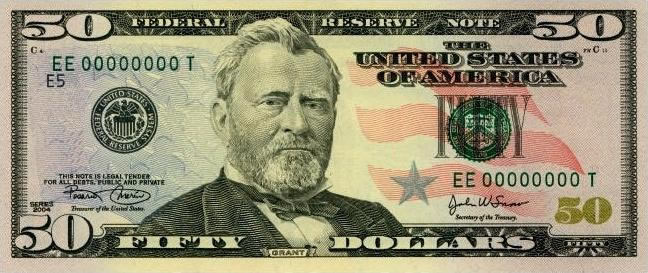Ulysses S. Grant |
|||||
 |
|||||
Ulysses Simpson Grant was born April 26, 1822, in Point Pleasant, Ohio. Against his father’s wishes, Grant entered the US Military Academy and finished in the middle of the class. Like most military school graduates at the time, Grant was sent to Mexico and served under General Zachary Taylor during the Mexican War. In other endeavors before the Civil War, Grant was unsuccessful. At the outbreak of the Civil War, Ulysses S. Grant was working at this father’s leather shop in Illinois. He was appointed by the Illinois governor as the commander of a local militia but soon rose to the rank of brigadier general in the Civil War. Grant’s aggressive and bold tactics were a major reason why the Union Army was able to defeat the Confederates. His campaigns in the Mississippi River Valley were legendary and crucial to Union victory. In 1862, Grant led his forces to victories at Fort Henry and Fort Donelson in Tennessee. At Fort Donelson, Grant earned the nickname “Unconditional Surrender Grant.” Though less successful at Shiloh, Grant’s leadership opened the way for Union occupation of the Mississippi River. Grant went on to take the key port city of Vicksburg and then broke Confederate ranks at Chattanooga. In 1864, President Lincoln named him general in chief of the Union army. Grant’s “Overland Campaign” at such battles as Wilderness, Cold Harbor, and Petersburg took a heavy toll on Lee’s Army of Northern Virginia, despite the heavy casualties inflicted upon his forces. Lee’s weakened forces held the Confederate strongholds of Petersburg and Richmond for ten months before being overwhelmed by Grant’s forces. On April 9, 1865, Ulysses S. Grant received Lee’s surrender and the Civil War was over. In 1869, Grant was elected president of the United States. Unlike his military campaigns, his presidency was less than successful and plagued by corruption. Although he presided over Reconstruction in the South, Grant was seen associating with prospectors who tried to corner the market in gold. When he realized their plan, he authorized the Treasury to sell enough gold to ruin the plan, but the damage had already been done to business. After the presidency, Grant joined a financial firm that ultimately went bankrupt. In 1885, he died of throat cancer shortly after writing his personal memoirs. His works ultimately made $450,000 for his family. Grant is currently honored on the fifty-dollar bill of the United States. |
|||||
Full Presidential Biographies |
|||||
| Click a president to learn more! | |||||
 |
 |
 |
 |
 |
 |
 |
 |
 |
 |
 |
 |
 |
 |
 |
 |
 |
 |
 |
 |
 |
 |
 |
 |
 |
 |
 |
 |
 |
 |
 |
 |
 |
 |
 |
 |
 |
 |
 |
 |
 |
 |
 |
 |
||||